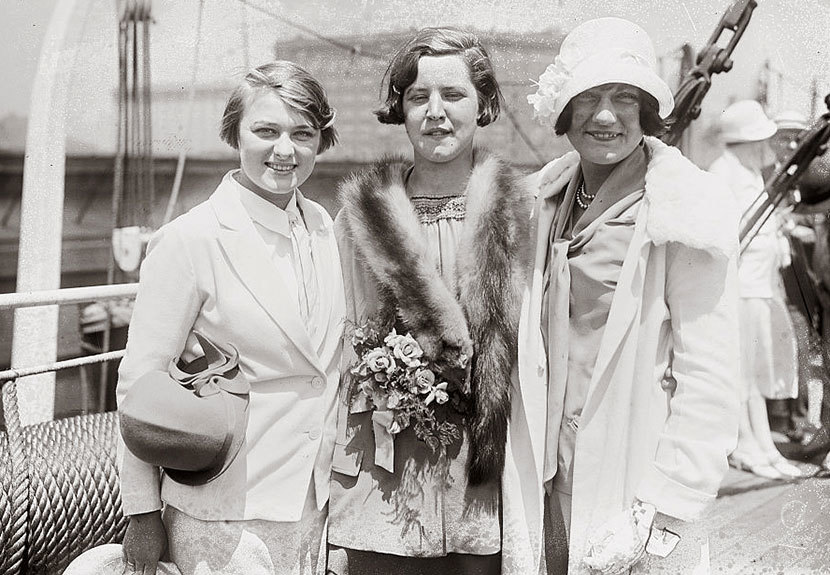W. O. McGeehan (1879–1933)
From The Great American Sports Page: A Century of Classic Columns

In 1926 Gertrude Ederle not only became the first woman swimmer to cross the English Channel but also did it in less time—by two full hours, in rough weather—than the fastest of the men who had completed the journey before her.
For over a year, Ederle had a champion in the press in W. O. McGeehan, one of the great sportswriters of the era, who shared the pages of the New York Herald Tribune with the likes of Grantland Rice and Heywood Broun. Convinced she would inevitably succeed, McGeehan helped to publicize her quest and redoubled his support even after her first failed attempt: “Where the English Channel lashes at Cape Gris Nez, in the north of France, young Gertrude Ederle is preparing for her second battle with twenty-two miles of the most turbulent seas that have ever made human effort look puny and ineffectual. There is no purse for the victory. There will be no gate receipts.”
For months McGeehan complained about the lack of attention by his colleagues to the various women in swimming who, like Ederle, had been setting new records—including many previously held by men—in trials of individual endurance that lasted hours rather than minutes. “What is sport?” he asked. “The man trained in the work of modified murder ‘killing’ a helpless antagonist for a record purse, or the seventeen-year-old girl fighting the elements for nothing at all?” Although media attention (both negative and positive) did increase during the year after her initial failure, both the athlete and her sportswriter-fan were stunned by the two million people lining the streets of New York for the ticker-tape parade that greeted her upon her triumphant return to the United States.
Ninety-five years after her astonishing achievement, Ederle is back in the news; in December came word that Daisy Ridley, of Star Wars fame, is set to play the swimmer in a movie based on her life. Production will begin later this year. In the meantime, we present one of McGeehan’s columns about his idol, as well as an introduction describing Gertrude Ederle’s remarkable year pursuing what many regarded as an impossible dream.



